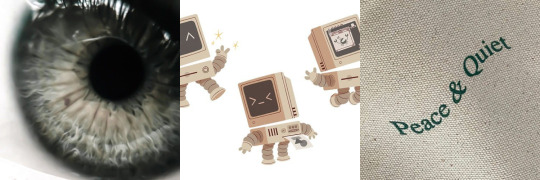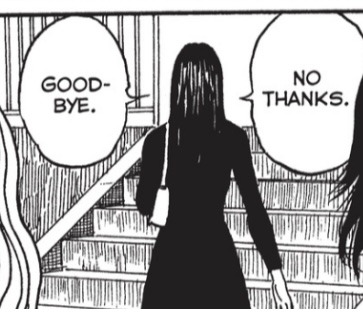#Maruse
Explore tagged Tumblr posts
Text



▂▃░͟͏ུ᳝̯ 🕯️ (Lord, Give Me One More Chance)



どうにかしたいの ⣿🪃📵░



#͏ ͏ ͏ ͏ ͏ ͏ ͏ ͏ ͏ ͏ ͏ ͏ ͏ ͏ ͏ ͏ ͏ ͏ ͏ ͏ ͏ ͏ ͏ ͏ ͏ ͏ ͏ ͏ ͏ ͏ ͏ ͏ ͏ ͏ ͏ ͏ ͏ ͏ ͏ ͏ ͏ ͏ ͏ ͏#junji ito#junji ito icons#manga icons#anime icons#character icons#random icons#messy icons#lq icons#tomie icons#remina icons#hellstar remina#souichi tsujii#souichi icons#marusou icons#chizumi azawa icons#yuma azawa icons#horror icons#terror icons#manga horror icons#manga terror icons
410 notes
·
View notes
Text






🫂 tem coisa boa no meio
#icons#lq#lq icons#layouts#lq layouts#colored icons#tomie kawakami#tomie#tomie icons#tomie tomie#tomie layouts#manga#marusou icons#marusou#miss kikuchi#marusou layouts#junji ito
263 notes
·
View notes
Text

Josipa Marusic by Boris Stajduhar
- Playboy Croatia
7 notes
·
View notes
Text


Do Reasons Expire? An Essay On Grief by Beri Marusic
2 notes
·
View notes
Text
The Black Paradox gang is my nightmare blunt rotation
#marusou would get hella paranoid#throw in Dr Suka. for fun#it might end in someone dying who knows#junji ito#ito junji#black paradox#horror manga#manga
4 notes
·
View notes
Text




Stan Marusou for being one of the only junji ito protags logical and sane enough to try and escape/run away instead of staying around to find out for herself
#black paradox#junji ito#stan marusou#its a shame that she kept on getting dragged into these messes in the first place#we need more horror media protags like this
14 notes
·
View notes
Text
“Watching events unfold this weekend in Israel, I thought back to a feeling that I first felt more than two months ahead of Russia launching its war in Ukraine. That same sense of dread is, if nothing, more firmly entrenched in my chest today. The feeling is still nebulous. It’s as if we are all watching a catastrophic car crash and simply don’t have the vocabulary to describe it.
(…)
“Autocracy versus democracy” does not usefully describe the moment. It feels like a discarded line from some kind of late-night brainstorming session. Its purpose was ostensibly to organize thinking — to name a threat and to allow for collective action. In the cold light of day, it reads like self-regard.
(…)
But many woke up on Saturday to the palpable fear of a real threat. Towns and small cities overrun by well-organized militia. Scores of civilians shot dead. Hostages abducted. As I write this on Monday night, the IDF is still fighting battles in Israeli population centers. Soon enough, it will be waging a Stalingrad-like fight in Gaza, doling out horrific human costs in pursuit of retribution. And that’s if no other nasty surprises are looming. The prevailing consensus is that 9/11 is the correct historical parallel for Israel. If Hezbollah enters the fight in the coming days, the 1973 Yom Kippur War will be a more apt comparison.
(…)
No, it’s not about democracy versus autocracy. The wheels are coming off. Our predecessors bequeathed to us a period of unprecedented tranquility. They were not infinitely wise in getting us here — no wiser than we are. But we grew up used to it in ways they could never imagine. We assumed order was normality, that peace was what naturally arose when power-hungry hyperpowers minded their own business. A better and more just world was there for the taking, if only we were moral enough to push for it.
The overarching metaphor in one of Robert Kagan’s recent books is fundamentally correct: order is a garden to be tended, but the jungle is the norm. I still hold that his moralistic “authoritarianism versus democracy” paradigm is misguided. Morality has nothing to do with it. Pessimism about progress — a conviction that nothing is permanent — is a far better guide.
My friend and former colleague Walter Russell Mead penned a prescient column earlier this year. He put his finger on the failings of the Biden administration’s fundamentally optimistic worldview. He pointed out that China, Russia and Iran are eating away at the existing order.
From the outset, the administration knew that the American-led world system was in trouble, but it underestimated the severity of the threat and misunderstood its causes . . . Two years later, the Biden administration is struggling to manage the failure of its original design . . . Russia isn’t parked, Iran isn’t pacified, and the three revisionists are coordinating their strategy and messaging to an unprecedented degree.
The Biden folks really are the third Obama administration. They fundamentally believe that the moral arc of the universe bends towards justice. At the limit, they see our primary task is to make sure we don’t stand in the way.
It’s time to abandon those good feelings. Our holiday from history is over. Or at least it needs to be over.
The Wall Street Journal ran a strong editorial today calling on the United States to get on a solid war footing. I’ve made a similar case for months now. Given how the Ukraine War has progressed, I’ve argued that President Biden needs to stand in front of the nation and tell the American people that the free lunch is over. We can no longer enjoy the massive “peace dividend” we reaped in 1991. It’s time to embrace that the world is dangerous and unforgiving. Prepare for the storms that are coming.
(…)
The Europeans were perhaps rattled in the first weeks of the war, when everyone thought Kyiv would fall in a fortnight. Even German Chancellor Olaf Scholz was saying how German thinking about security was undergoing an epochal transformation. That didn’t last. And even reports that Russia is by some measures now militarily outproducing both the United States and Europe combined hasn’t altered the mood.
Make no mistake, this isn’t just European decadence. We here in the United States are no less complacent. We talk about shared values and how we must support the Ukrainians until the end. But (not-so) secretly, we are glad that they are dying instead of us. Apart from a handful of military veterans and foolhardy enthusiasts, there are a vanishingly few people putting their lives on the line for a common moral cause. Though we say this is our fight, it’s really not.
Why? We come full circle. “Democracy” is not a real cause, “autocracy” is not a real threat. Or, to put it more carefully, that binary does not resonate today in ways that would have you put your life on the line. Not in the way it did during the Cold War, anyway. Safe peaceful street protests against domestic despots-in-waiting? Sign me up. I’d love to re-enact 1989. But as a unifying narrative with real stakes? It’s misaligned. It misidentifies the problem in some non-trivial way. Everyone feels that disconnect, and shrugs when it is invoked. This is not an assertion, just an empirical observation.
But something is happening. I feel it. I think many others feel it. The jungle is growing back. And we naive civilized folks, we couldn’t even start a fire without matches, much less feed or defend ourselves in the wilderness.”
“The larger context is that the U.S. and its allies now face two regional wars provoked by rogue states that are increasingly aligned. Israel and Ukraine are on the front lines, but the risk of an expanded conflict is real. Iran is feeding weapons into Vladimir Putin’s invasion in Ukraine. Mr. Putin is a junior partner of the Chinese Communist Party, which could try to exploit the moment in the Pacific.
The strategic and political point is that the return of war against Israel isn’t an isolated event. It’s the latest installment in the unraveling of global order as American political will and military primacy are called into question.
The President now has an obligation to increase the defense budget and stop treating the U.S. military as a political wedge to feed the American welfare state. For three years Mr. Biden has proposed cuts in defense spending after inflation, even as the world has become more dangerous.
The President can stop the budget games—the demands that every dollar on U.S. forces be matched with another for solar panels or food stamps—and work with Republicans to rebuild U.S. military power. That package should include aid for Israel, Ukraine and Taiwan. It should feature a generational effort to expand U.S. munitions inventories, from 155mm artillery to sophisticated long-range antiship missiles. Ditto for a plan to build more U.S. attack submarines for the Pacific.
Already officials are leaking that the U.S. may struggle to supply both Israel and Ukraine with artillery or other weapons while also deterring China. But America can either meet the moment or regret it later when the world’s rogues attack other allies, or U.S. forces deployed abroad, or even the homeland.
(…)
As for Republicans in Congress, they will have to get serious about governing and elect a new Speaker with dispatch. They need to isolate the Steve Bannon acolytes who treat shutting down the government for no good reason like a personal power play. Americans may be among Hamas’s hostages, and the GOP should support Mr. Biden if he sends a military mission to rescue them. The world needs to see that the U.S. can unite in a common security purpose.
(…)
The growing global disorder is a result in part of American retreat, not least Mr. Biden’s departure from Afghanistan that told the world’s rogues the U.S. was preoccupied with its internal divisions. But too many Republicans are also falling for the siren song of isolationism and floating a defense cut in the name of fiscal restraint. The Hamas invasion should blow up dreams the U.S. can “focus on China” and write off other parts of the world.
Donald Trump didn’t rebuild U.S. defenses as much as he claims, and his political competitors should say so. Former Vice President Mike Pence was correct when he said over the weekend that the awful scenes abroad are what happens when political leaders are “signaling retreat from America’s role as leader of the free world.” Nikki Haley sounded similar notes.
They seem to know what time it is. The rest of Washington needs an alarm clock.”
“Exactly 37 years ago, on a bleak outlook overlooking the Atlantic, the two remaining Cold Warriors met in Reykjavik and proposed the almost unthinkable — to rid the world of all nuclear weapons.
Ronald Reagan and Mikhail Gorbachev began a dialogue that set in motion a series of summits that would ultimately not achieve this bold objective but resulted in what many historians cite as the beginning of the end of the Cold War.
However, the question remains: to what end?
While the Cold War came to a close, the threat of nuclear war did not. The global nuclear arsenal had reached its peak in 1986 with over 63,000 weapons in circulation compared to 12,500 today, according to the Federation of American Scientists.
But the number of missiles is immaterial, as today’s weaponry is five times more lethal than Big Boy and Fat Man — the two bombs dropped on Japan at the end of WWII.
In addition, the range and mobility of the current arsenal have expanded significantly with the ability to reach any destination — from London to Moscow to Washington — in a matter of minutes, wiping out millions of people instantaneously.
(…)
The subsequent arms race that ensued between America and the Soviet Union led to the doctrine of Mutual Assured Destruction, or MAD, that served to handcuff both sides with the premise that “if you fire on me, I’ll fire on you.”
A flawed concept to be sure. Yet the MAD strategy (which it truly is) remains the primary nuclear conflict deterrent today.
Adding to this MADness is the nonchalant manner that a large part of the world has adopted toward the threat of a nuclear conflict.
The possibility has shifted to the back of our collective psyches allowing us to focus on more important issues crowding our agenda.
A case in point is the most recent Republican presidential debate. While there were several questions around Taiwan and Ukraine, there was no specific reference to the “what if” of a nuclear engagement.
(…)
As a child of the Cold War, I can still remember the air raid drills in my community and hiding under my school desk.
That clear and present danger had lurked over the civilised world’s head but has since dissipated into the ether.
One would hope bright minds in political capitals around the world are gaming how to avoid a nuclear conflict.
But that notion calls to mind a moment when President Reagan after being briefed on the concept of Mutual Assured Destruction posed the simplest of questions, “What is Plan B?” to which his advisors had no answer.
And today as we celebrate their famous meeting in Iceland almost four decades later it is time again to ask our leaders — “What is plan B?””
2 notes
·
View notes
Text

#Adam Marusic#4k#blue neon lights#Lazio FC#Serie A#Montenegrin footballers#Adam Marusic 4K#football#soccer#Adam Marusic Lazio#SS Lazio#wallpapers
0 notes
Text

#Adam Marusic#Lazio#Serie A#Montenegro#Montenegrin footballers#football#soccer#Lazio FC#SS Lazio#transparent png renders
0 notes
Text

Klara Mucci by © Duško Marušić
0 notes
Text
This passage’s implicit value system would justify saying that compassion is good because it reduces blood pressure, that honesty is good because speaking the truth causes a pleasant release of endorphins, that you shouldn’t rob and murder someone because doing so might worsen fine lines and wrinkles. It’s a stance on morality that has completely excised the interests of others, which is to say, an anti-morality, a consumer product marketed in moral terms, a justification for selfishness bought off the rack.
Freddie
5 notes
·
View notes
Text

Josipa Marusic by Boris Stajduhar
- Playboy Croatia
4 notes
·
View notes
Text



Do Reasons Expire? An Essay On Grief by Beri Marusic
2 notes
·
View notes
Text
[Christine Caron in the NY Times] establishes the terms under which [she] might consider forgiveness good or bad - with an actuarial table. This attitude is the nut of the whole thing, an attempt to justify or undermine transcendent human virtues with links to PubMed. That we might want to embrace moral virtues like forgiveness in the pursuit of benefits that can’t be measured with an Apple Watch goes unconsidered. The idea that there are higher virtues towards which we might labor is nowhere to be found. … The ideology that Carons demonstrates here, the set of assumptions she can’t begin to examine critically because she does not notice them, says that the individual has no responsibility to anyone but themselves. … Who told you that your emotional comfort is the heart of the moral challenge? The moral challenge resides in the face of the other.
4 notes
·
View notes
Text

Marusal
A piscivore "fangded" noasaur found in woodlands of LoLT. They have two tactics of feeding: one is wading near rivers , catching anything which can't fight back or escape in time; second is swimming at the surface and occasionally diving for short time when prey is close enough. Webbed feet and paddle like tail make them quite good at swimming , however marusals are very poor divers. Except for fish marusals can eat invertebrates , small terrestrial and flying tetrapods. Striking eye-like pattern on tail confuses predators by making them think it is the head.
3 notes
·
View notes



